Find out why social stories are an incredible tool for parenting young children. Find examples and a formula. Perfect for positive discipline.
In the space of a couple of weeks, my five-year-old’s behaviour went from thoughtful and kind to unmanageably difficult.
I’m used to a girl who, when I ask for help, leaps up to offer me a hand. When my four-year-old son has a meltdown, she is the epitome of calm and reasonable.
Lately, however, she won’t miss an opportunity to pinch her brother as she passes him. She sticks out her tongue when she doesn’t like what someone says. When she’s colouring, the moment her crayon goes outside of the line, she rips the page from her Moana colouring book to shreds and throws her markers.
The change in her demeanour happened so quickly my head spun. I had no idea what to do. And so we entered into a continuous cycle of her acting out and me taking her up to her bedroom for a time in.
Related reading: The analogy that will change how you view your child’s difficult behaviour
Typically, our time ins go like this.
I bring her upstairs into her bedroom and close the door. I sit on the floor, open my arms and she falls into me. Then, I do my best to understand what is happening. I usually say something along the lines of: You’re really angry, huh? She tells me how she’s feeling. We agree a better course of action would be better. By the time we get downstairs, it’s as if her emotional slate is wiped clean.
In the past two weeks, this hasn’t worked at. all.
Related reading: Positive Parenting Strategies to Calm an Angry Child
This is what happened when it came to a head.
On the weekend, her storm of anger reached its peak. And I, feeling helpless, was about to lose it. I don’t even know how many times I had brought her to her room that Saturday, but we were both flailing. I grabbed her by both shoulders and looked her dead in the eye.
“What’s wrong?”
It was a rhetorical question. What I actually meant was stop acting in the ‘wrong’ way.
At the tender age of five, she sensed my disingenuousness. For the first time ever, she didn’t lean into my embrace. In fact, she anted up to my frustration by going to the opposite side of her room from me. From her bed, she slid down onto the floor and rolled underneath so we could no longer see each other.
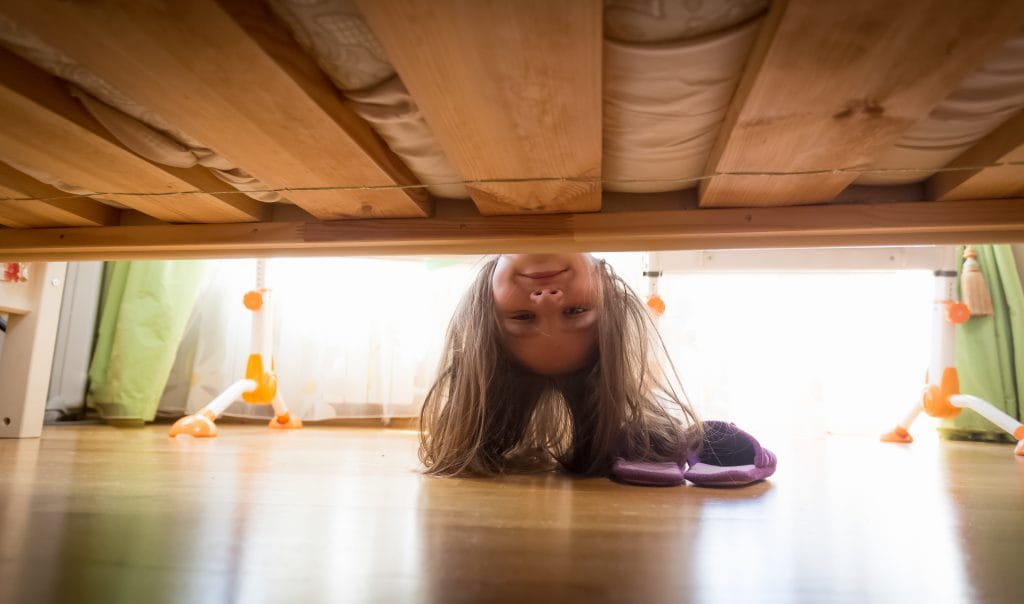
My heart was beating so strongly I could feel it in my throat. Normally, I understood my daughter. Even when her behaviour was unmanageable, I could see myself in her and could introspect to know how to act. This time, I was lost.
That’s when it dawned on me. Social stories had worked in the past so I thought I would give it a try.
I gulped hard and started speaking.
“My girl is a smart, creative and sensitive girl. Whenever she could, she helps her mama and brother. She loves to do arts and crafts and play dolls. One day, things started to get hard for this girl. And because of that, she felt more and more frustrated. Her mama was busy with her brother and the baby.”
As I took her perspective, it all made sense.
In the weeks prior, my sensitive little girl had faced hardships. My parents’ dog, who she loved, was hit by a car. Then, my dad fell off a ladder and ended up in the hospital. And, she witnessed a loved one have a grand mal seizure. Plus, her brother had been needier than usual.
I incorporated these realizations into my improvised social story.
What are social stories?
Social stories refer to text, spoken word, or a series of pictures used as a means to help children on Autism Spectrum to self-regulate, anticipate unexpected changes (i.e. a fire alarm at school), understand theory of mind, and many other challenging life events.
This is how social stories empower young children
While social stories were originally intended for ASD children, they are a powerful tool to scaffold self-regulation from young children. I had used them before quite a bit when my kids were younger but had forgotten how amazing they can be. Here are some examples.
Here are examples of when social stories work well
- Potty training/ having accidents,
- Trying new foods,
- Transitions/ big changes/ life events,
- Sleeping in their own beds,
- Facing fears, and
- More recently during social distancing.
Related reading: Social distancing and easing anxiety in kids
Generally I use a formula of a story about me as a child struggling with a similar life event as my children are. To build anticipation, I tell details and use repetition. For instance, the next day, I had another accident, but I kept trying and trying. Then, I describe how I eventually became proficient at the skill. The story switches to them. I illustrate their own struggles and attempts. Then, I explain how, eventually, they too will master the skill they’re struggling with.
But they don’t have to be all that elaborate or creative to be effective.
To create a simple but effective social story, simply, use first person, present tense and simple sentences.
What is going to happen?
Who is involved?
How might the child feel?
What will the situation feel like?
What is an appropriate way of responding?
How is it likely to play out?
For instance, in the case of social distancing and self-isolation, it may be something like, “Johnny feels worried and angry. He tells Mama he’s upset he can’t go to school and play with his friends. Mama tells Johnny that it is hard and frustrating. They can FaceTime his friends and work in the garden and go for walks in nature. It will be different but it will get better. No matter what, his parents are there to love him and talk to him when he’s angry or upset.”
Provide positive affirmation and underscore strategies that the child has used in the past.
I love social stories for parenting because they:
- give my kids the words they are lacking,
- convey empathy,
- scaffold their abilities just outside of their grasp,
- promote self-regulation,
- set expectations in a way that is more palatable than typical discipline,
- give appropriate behaviours for new situations, and
- are a powerful alternative to lecturing.
Related reading: Scolding is ineffective. Here’s what to do instead.
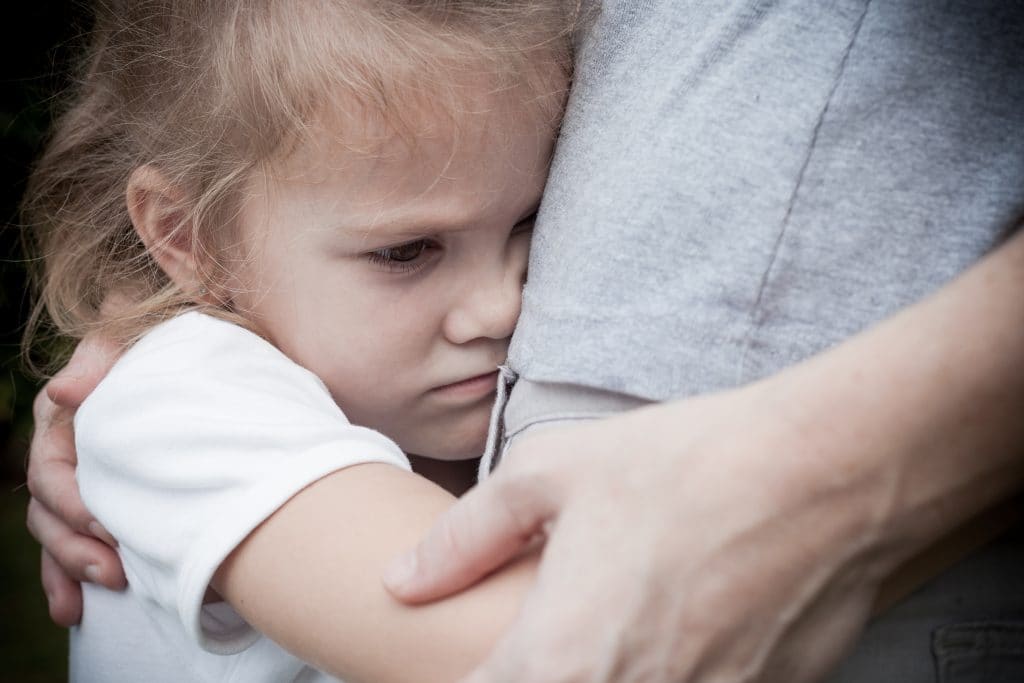
Slowly, my daughter inched herself out from under the bed. By the time I’d reached the clincher in my tale, she was in my arms once more.
“When the mama realized the girl had struggled when her grandpa got hurt and Maggie got hit by a car, all she wanted to do was hug her girl. The mom took the girl in her arms and suggested the two of them head out for special girls’ time.”
This was the first time we headed down from our time in her room where she smiled. Her relief was palpable and so was mine.
For more great articles like this, check out:
COVID-19, social distancing and easing anxiety in kids
The analogy that will change how you view your child’s difficult behaviour
Scolding is ineffective. Here’s what to do instead.
How to stop backtalk and restore peace in your family
Calming an Angry Child: positive parenting strategies that work







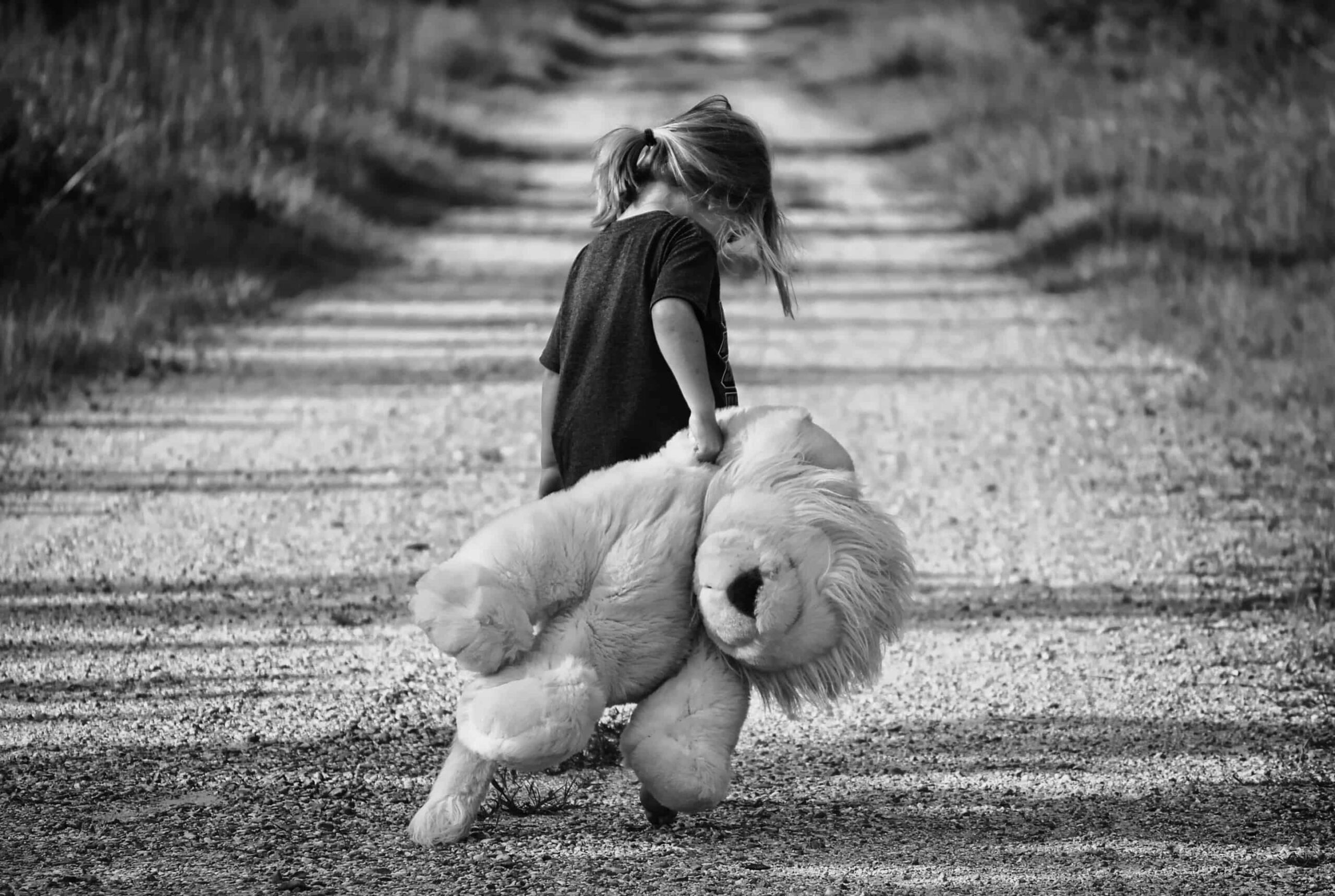
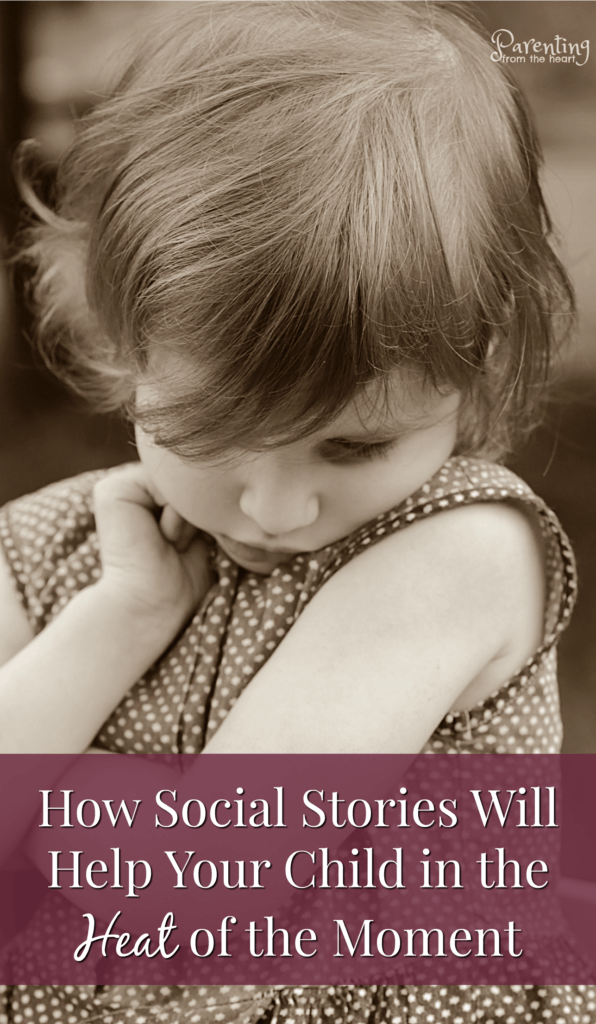
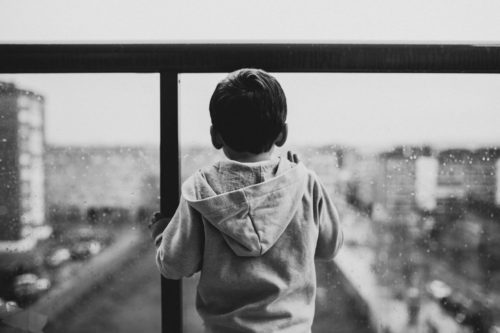
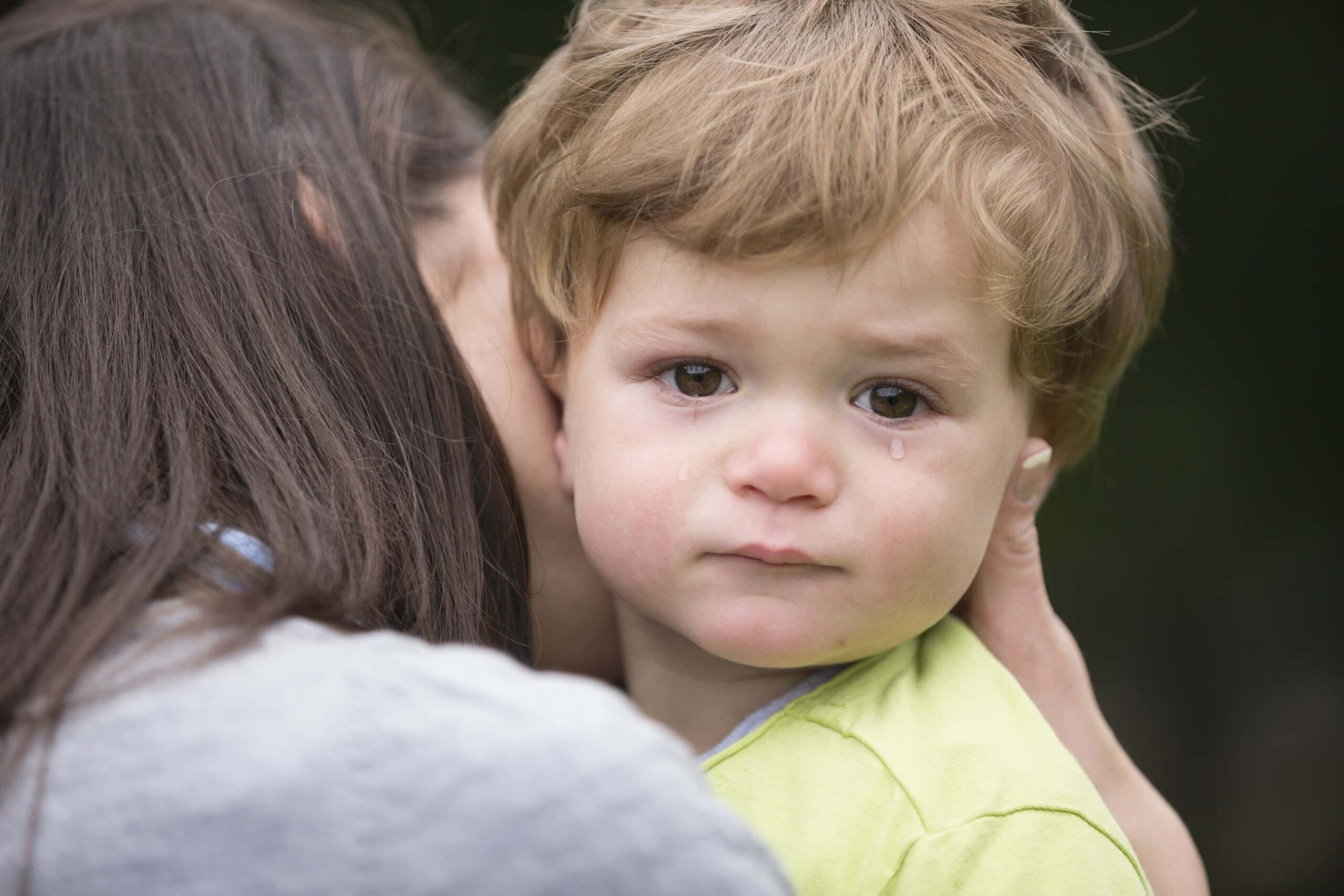

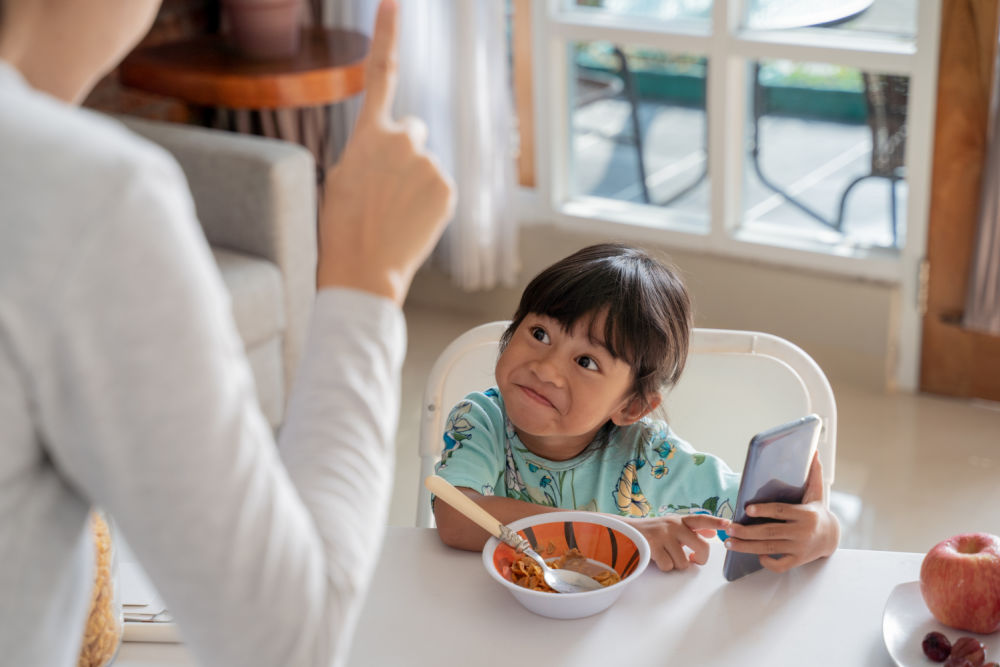
What a fantastic idea! I could have used this method with my daughter yesterday-she was really testing my limits! I love that your sweet girl was willing to try the stuff on her plate. Honestly, I am going to try this the next time I have an opportunity!
I love your take on social stories! I think relating them to a family member is genius and so relatable to a toddler 🙂 I need to remember this!
I really enjoy your positive parenting. You always have the most creative and loving ideas. Your social stories are brilliant.
Shelah, coming from you, this is an INCREDIBLE compliment ❤️
Social stories have always worked best for my older girls. Love this post. So well written:)
Omg I soooooo needed this today!!! It was almost a 5 hour long string of tantrums last night over EVERYTHING. I honestly couldn’t even…anymore….I haven’t used social stories in awhile. I’ll be bringing them back tonight to hopefully set the stage for a better evening. Thank you! Sharing!
Oh I can certainly relate. It’s funny how we almost forget certain parenting strategies until you hear someone else using them. Thanks for reading xo
I think I should have read this one this morning!! We had a very unsuccessful day from my point of view… a few accidents, no nap, didn’t want to eat dinner… You name it I was dealing with it!! I will try this approach tomorrow if I have a repeat offender.
I can certainly relate! Thanks so much for reading ❤️
This is such a great idea! I’m going to try it out with my kids!
Thanks so much, Melissa ❤️
I saw your scope about this — and as an aside, I could totally relate to what you were talking about having your child in childcare for so long! — and I thought this was a fabulous idea. I used to work with children with ASD, and social stories were so instrumental. I can see how this would also be a great tool for my toddler. I will definitely try it with her!
So happy I finally got a chance to read this – I remember you mentioned it during one of your scopes this past week. Great idea, and I’ll definitely be trying it for sure. Lately when my daughter has been going to bed, I’ve been making a HUGE point to tell her what a great job she did the night before sleeping, and am providing as much positive reinforcement as possible. Maybe this idea could help us too, with getting her to sleep better through the night! And for many other things! 🙂
As a mom to an almost 3 year old, I am also on the lookout for ways to parent better. To help diffuse the situation at hand. This are some great tips.
Thanks so much Stephanie! That’s a huge compliment!
This is such a great post! Thank you for sharing! I will surely use this. Positive parenting is the way to go! Well done, mama!
Thanks so much for reading!
As i read your article, i kept smiling and smiling… that’s what i do with my 4 and a half years old daughter especially when her behavior is unexplained (teasing her brother, throwing toys and FOOD out of nowhere…).
I currently don’t act when she does sth like this, i ignore the act completely and when she calms down a bit, i interfere with explanations and end us with a story about myself when i was a kid fighting with my little brother at home etc…
I also tell her bedtime stories about me or a princess somewhere explaining the wrong/right …
Kids are soooooo intelligent and they understand us more than we do. We as mothers have to know how and when to handle each situation without making a scene and pointing the finger on “Oh no that’s bad. that ‘s not right etc…”.